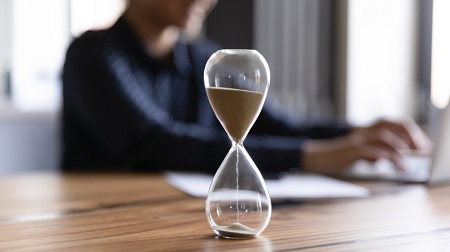Making Time to Measure Better
by Stacey BarrThe irony is that if we don’t make time for better measurement now, we’ll have even less time for it in the future. In other words, all the reasons why we don’t have time to measure are the very reasons why we need to.

It’s a vicious cycle: We don’t have time to measure performance, so we don’t have time to improve it. Because we don’t have time to improve performance, we stay busy because we have to compensate for all the underperforming things.
The only way the underperforming things will ever take up less of our time is if they are measured and improved. Measuring performance gives us much more accurate, precise and objective information to decide how to improve things, and improve them with leverage. If you’ve read one of the greatest classics on performance measurement, Transforming Performance Measurement by Dean Spitzer, you’ll understand why:
“Organizations are conglomerations of many systems. Measurement is actually the most fundamental system of all. When the measurement system works well, management tends to manage (and reward) the right things – and the desired results will occur. The measurement – for good or ill – triggers virtually everything that happens in an organization, both strategic and tactical. This is because all the other organizational systems are ultimately based on what the measurement system is telling the other systems to do.” – Dean Spitzer
The only way we can stop the waste caused by underperforming systems is if our busyness to compensate for them is given a lower priority than measuring and improving them.
Easier said than done, right?
Well, to make it easier to do (because it’s important!), take your pick from one or more of the following strategies to make (not find, but make) time to measure better. Then you can take back control of how those underperforming things use up your time.
Start with just 1 hour per week.
It’s much easier to start a habit of one hour per week for better measurement, than to start a full-blown performance measurement project. In one hour per week, you can walk yourself, and even a few colleagues with you, through a lean approach to measure and improve one underperforming thing.
Lock this hour in your calendar as a recurring appointment. Use these 7 steps to get the most from your weekly measurement hour.
Include measurement in your time management prioritisation.
Measuring performance is, of course, about improving performance. Not always, but certainly very often, the things that are underperforming are also wasting our time. They need rework. They take longer than they should. They involve things that don’t need to be done. But we rarely quantify this wasted time.
Measurement needs to be a higher priority in our time management because it’s pivotal in saving the time that underperforming things are wasting. Make time for it by deciding which tasks you can delete, delegate, downsize, delay, or delineate.
Leverage the reasons why people make time for things.
Getting others involved in better measurement can build momentum. In the workplace, people do things because those things are important. Or because those things are already habits. Or because their managers have made it clear they should do those things. To help people give more time to measurement, it helps if they can see why it’s important to them, how to make it a habit, and how to help their managers or supervisors see it as something they should be doing.
Explore these tactics to work out how to make measurement become more important, more of a habit, or more of a ‘should’.
Reinforce the above three time-making strategies…
Here are 21 ways you can stop doing things to make time for better measurement. These might help you reinforce any of the above strategies you want to try. Or you can cherry-pick from them to start building some momentum toward making time to measure better.
Connect with Stacey
Haven’t found what you’re looking for? Want more information? Fill out the form below and I’ll get in touch with you as soon as possible.
167 Eagle Street,
Brisbane Qld 4000,
Australia
ACN: 129953635
Director: Stacey Barr




